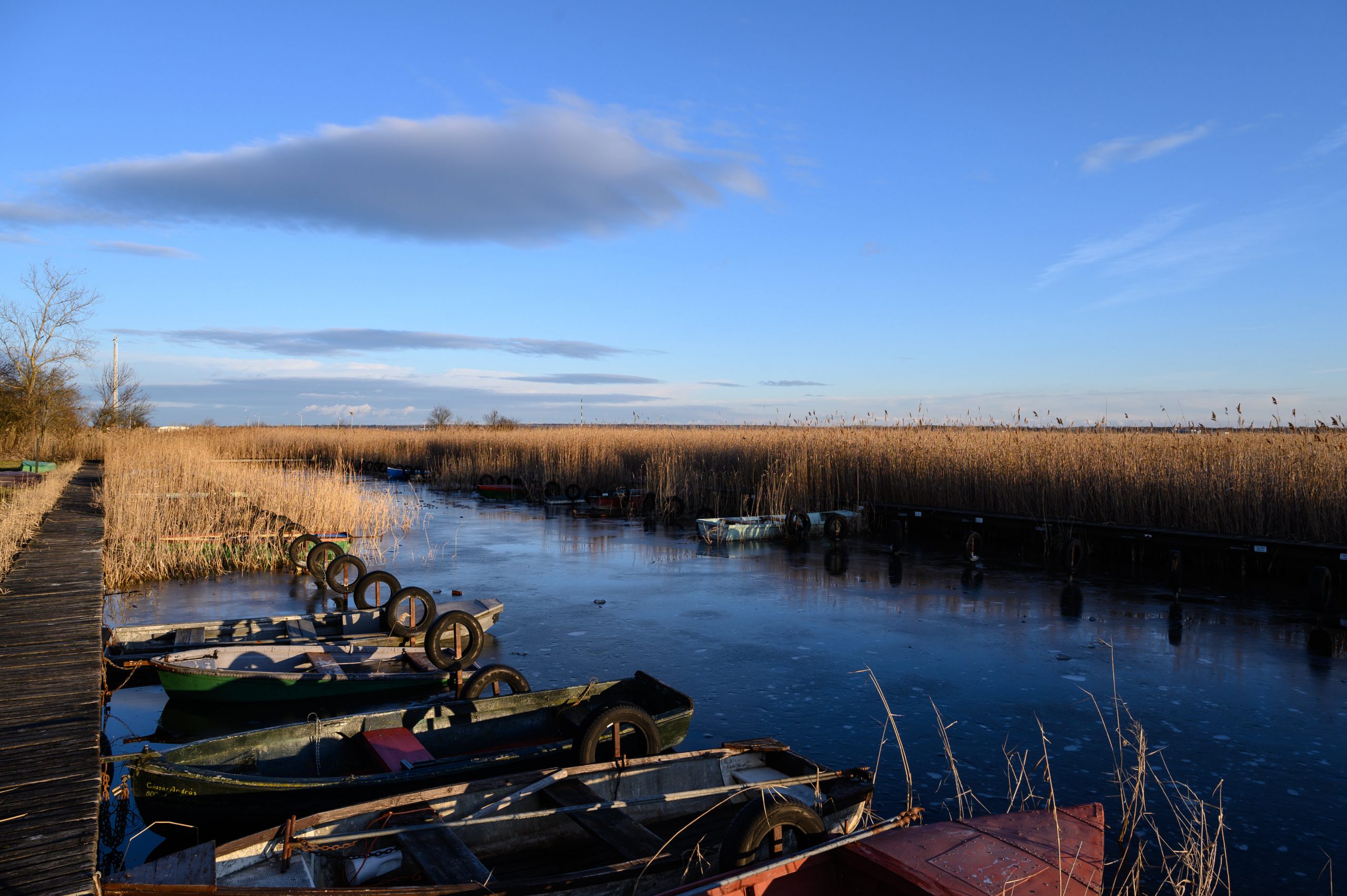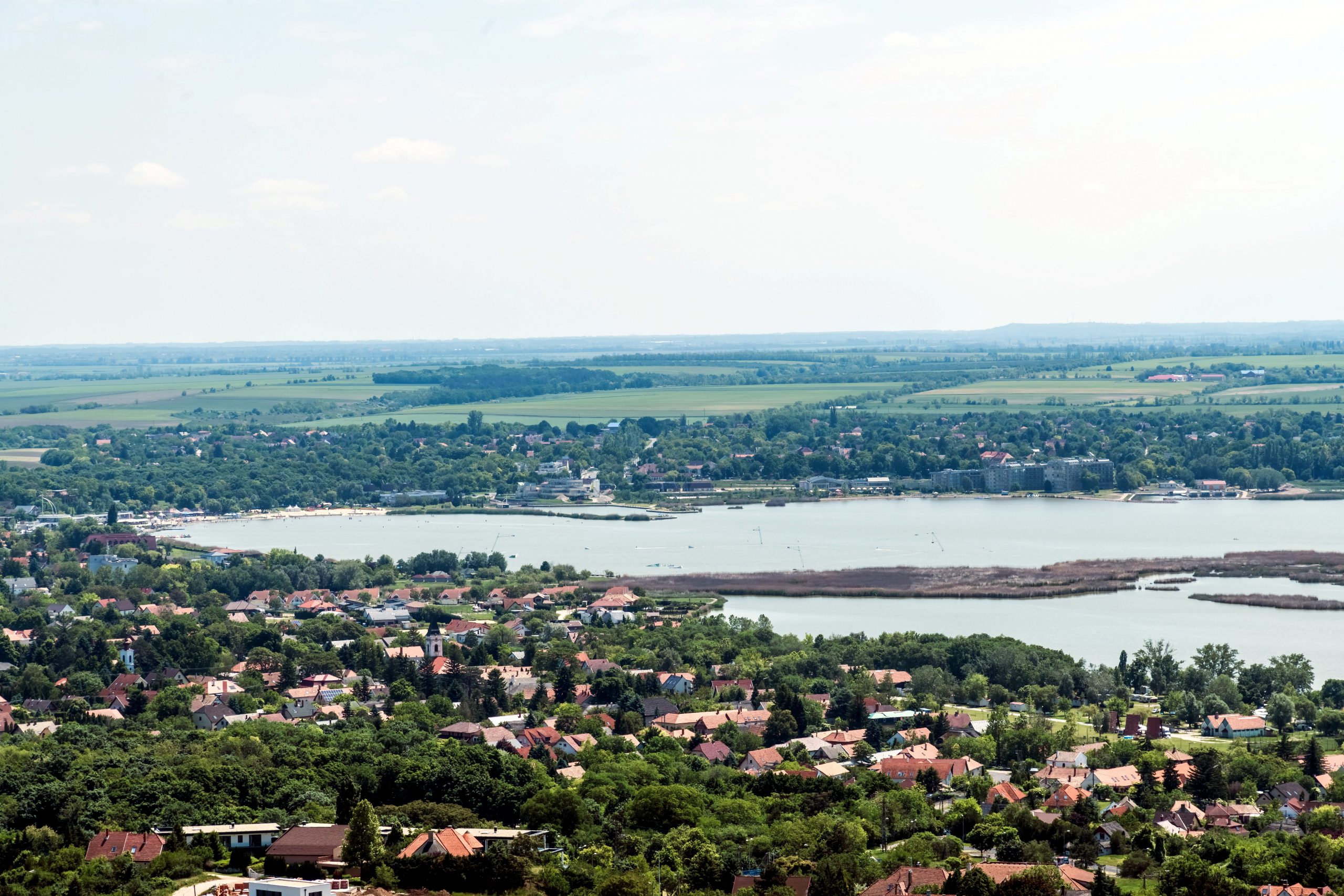
The government argues that they want to primarily use the financial resources required to replenish the water to restart the economy after the pandemic.Continue reading

Although the shocking amount of fish carcasses have disappeared, the water level in one of Hungary’s largest lakes and popular tourist destination, Lake Velence, remains critically low. Since the Orbán administration found a previous water replenishment plan too expensive, no alternative proposal has been put on the table. Opposition parties say the government is standing idly by and watching Lake Velence being turned into a desert wasteland. Meanwhile, President János Áder has called for the assembly of a team of experts to come up with an action plan.
Lake Velence is the third largest lake in Hungary, and similar to Lake Balaton, one of the most popular tourist destinations. This summer’s extremely hot and dry weather did not favor the state of the lake. By mid-summer, almost half the water mass had disappeared and the water level is still alarmingly low: less than 90 centimeters deep instead of the ideal 160-180 centimeters. The situation has also taken its toll on the lake’s marine life. The water is so shallow and warm that more than three tons of fish, two percent of the total stock, drowned from lack of oxygen at the beginning of the summer.
Due to the extremely low water level, Lake Velence needs to be replenished, but the HUF 40 billion plan for the replenishment cannot be supported by the government at the moment; at least according to Zoltán Tessely, the government commissioner responsible for the development of Lake Velence.
In a recent news report, Tessely, who is also the MP of the region from governing Fidesz, said that a proposal to replenish the water level, costing HUF 40 billion (EUR 112m) had been created. However, the Orbán administration wants to use the money primarily to restart the economy after the pandemic, so the project is being postponed but hasn’t been formally rejected. So, for the time being, the replenishment of the water level remains unsolved.
Later on, Péter Vas, one of the founders of the Civilians for Lake Velence Facebook group, which was created by civil activists to save the lake, also spoke to government-critical conservative news site Magyar Hang about the plan.
According to Vas, the rain of the past few days have not solved the most pressing problem of low water level in Lake Velence. Vas says that to raise this by just one centimeter, 250,000 cubic meters of water needs to be replenished. Currently, however, the water level is only 82 cm, 44 percent of the normal level.
The activist believes the plan Tessely proposed never existed, as evidenced by the fact that even its presentation was previously denied. Moreover, the activists had already prepared another proposal to solve the problem, which would have cost only 10 percent of the total cost of the plan now dismissed by the government.
Zoltán Kovács, State Secretary for International Communication and Relations, told RTL Klub News earlier that the Hungarian government is particularly concerned about the situation at Lake Velence, and added:
“There is no way that this situation can be resolved all of a sudden.”
Water experts are still working on the issue, the politician added.
“A country watches in shock as Lake Velence is turning into a desert wasteland, the entire wildlife of the area is being left to be destroyed and the livelihoods of tens of thousands of people living off local tourism are being ruined,” representatives of the Socialist Party (MSZP) said last week.
“It is utterly outrageous that the government is allowing one of Hungary’s greatest national treasures to be ruined, and shamelessly telling people who pay their taxes that it will not even give EUR 40 billion to save Lake Velence”, said Dávid Bihal, board member of MSZP and Pál Eötvös, the party’s municipal representative of Gárdony.
The opposition Democratic Coalition (DK), also slammed the government for being unwilling to spend HUF 40 billion on replenishing Lake Velence.
Judit Rácz Földi said during a press conference that the government had spent HUF 13 billion of European Union funding targeted for environmental projects around the lake on “cementing” green areas. Meanwhile, “Lake Velence is dying,” she said.
Masses of dying fish early in the summer and poor water quality have since driven away locals and Budapest visitors, she said.
Investments on the lakeshore have hampered environmental protection in the past years, resulting in the disappearance of 13 million cubic meters of lake water, she said. Local reservoirs cannot replenish this amount, she said, and insisted the “destruction of the lake is the responsibility of the investors and local governments.”
Although the government seems to be hesitant to tackle the problem, the Blue Planet Foundation (Kék Bolygó Alapítvány), founded by Hungary’s President János Áder, has decided to take action.
The organization is convinced that the “situation of the lake can only be resolved with the involvement of experts who have a deep understanding of the issue, and therefore the founder of the foundation, President János Áder, recently asked the foundation to put together a team of water professionals, biologists, and representatives from other fields of science to look into the past, present, and hoped-for future of Lake Velence, to formulate a professionally sound action plan,” said Ákos Krakkó, the Foundation’s Communications Manager, in an interview.
Ákos Krakkó said the current situation of Lake Velence has become part of the political discussion, and one does not need to be an expert to see that the current state of the lake ” calls for a solution,” but one needs to be an expert to find a truly effective solution that will solve the problem in the long term.
Featured photo by Imre Faludi/MTI